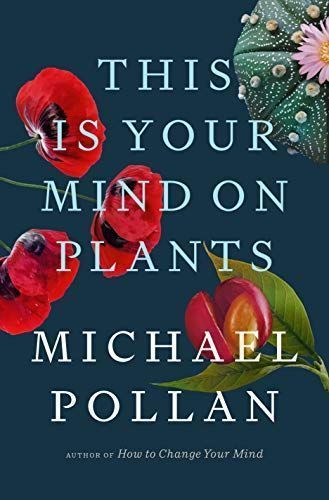
This Is Your Mind on Plants
From the #1 New York Times bestselling author Michael Pollan, a radical challenge to how we think about drugs, and an exploration into the powerful human attraction to psychoactive plants -- and the equally powerful taboos Of all the things humans rely on plants for--sustenance, beauty, fragrance, flavor, fiber--surely the most curious is our use of them is to change consciousness: to stimulate or calm, fiddle with or completely alter, the qualities of our mental experience. Take coffee and tea: people around the world rely on caffeine to sharpen their minds. We don't usually think of caffeine as a drug, or our daily use as an addiction, because it is legal and socially acceptable. So then what is a drug? And why, for example, is making tea from the leaves of a tea plant acceptable, but making tea from a seed head of an opium poppy a federal crime? In THIS IS YOUR MIND ON PLANTS, Michael Pollan dives deep into three plant drugs -- opium, caffeine, and mescaline -- and throws the fundamental strangeness, and arbitrariness, of our thinking about them into sharp relief. Exploring and participating in the cultures that have grown up around these drugs, while consuming (or in the case of caffeine, trying not to consume) them, Pollan reckons with the powerful human attraction to psychoactive plants, and the equally powerful taboos with which we surround them. Why do we go to such great lengths to seek these shifts in consciousness, and then why do we fence that universal desire with laws and customs and such fraught feelings? A unique blend of history, science, memoir, as well as participatory journalism, Pollan examines and experiences these plants from several very different angles and contexts, and shines a fresh light on a subject that is all too often treated reductively -- as a drug, whether licit or illicit. But that's one of the least interesting things you can say about these plants, Pollan shows, for when we take them into our bodies and let them change our minds, we are engaging with nature in one of the most profound ways we can. Based in part on an essay written more than 25 years ago, this groundbreaking and singular consideration of psychoactive plants, and our attraction to them through time, holds up a mirror to our fundamental human needs and aspirations, the operations of our minds, and our entanglement with the natural world.
Reviews
fris🐝@lfrisbee
Susan@itzzuzan
Sachi@sachi
Lord Aragorn@lordaragorn
Keven Wang@kevenwang
Vanessa Arenas@varenas
Nate@wiredfractal
Laura Mei@thelibrariansnook
Hooman Askari@hoomanaskari
Loren Botica@lozbot
Piet Terheyden@piet
Jacqueline Bzdyk@jvofreestyle
🍵@jaswang
sangeet anand@sangeet
Madison@madisonfrye
Trip Dunham @trippyd
Martin@mrtnmgs
Elizabeth Jones@emariet20
Trinity Vorm@trinityviera
Adam Becker@adambbecker
Justin@justinreist
Karolina@fox
Aaron Long@along
Denis@denis
Highlights
🍵@jaswang
Page 214
🍵@jaswang
Page 210
Sachi@sachi
Sachi@sachi
Sachi@sachi
Sachi@sachi
Sachi@sachi
Sachi@sachi
Sachi@sachi
Sachi@sachi
Sachi@sachi
Sachi@sachi
Nate@wiredfractal
Page 189
Nate@wiredfractal
Page 163
Nate@wiredfractal
Page 158
Nate@wiredfractal
Page 137
Nate@wiredfractal
Page 127
Nate@wiredfractal
Page 126
Nate@wiredfractal
Page 106
Nate@wiredfractal
Page 105
Nate@wiredfractal
Page 101
Nate@wiredfractal
Page 96
Nate@wiredfractal
Page 93
Nate@wiredfractal
Page 92